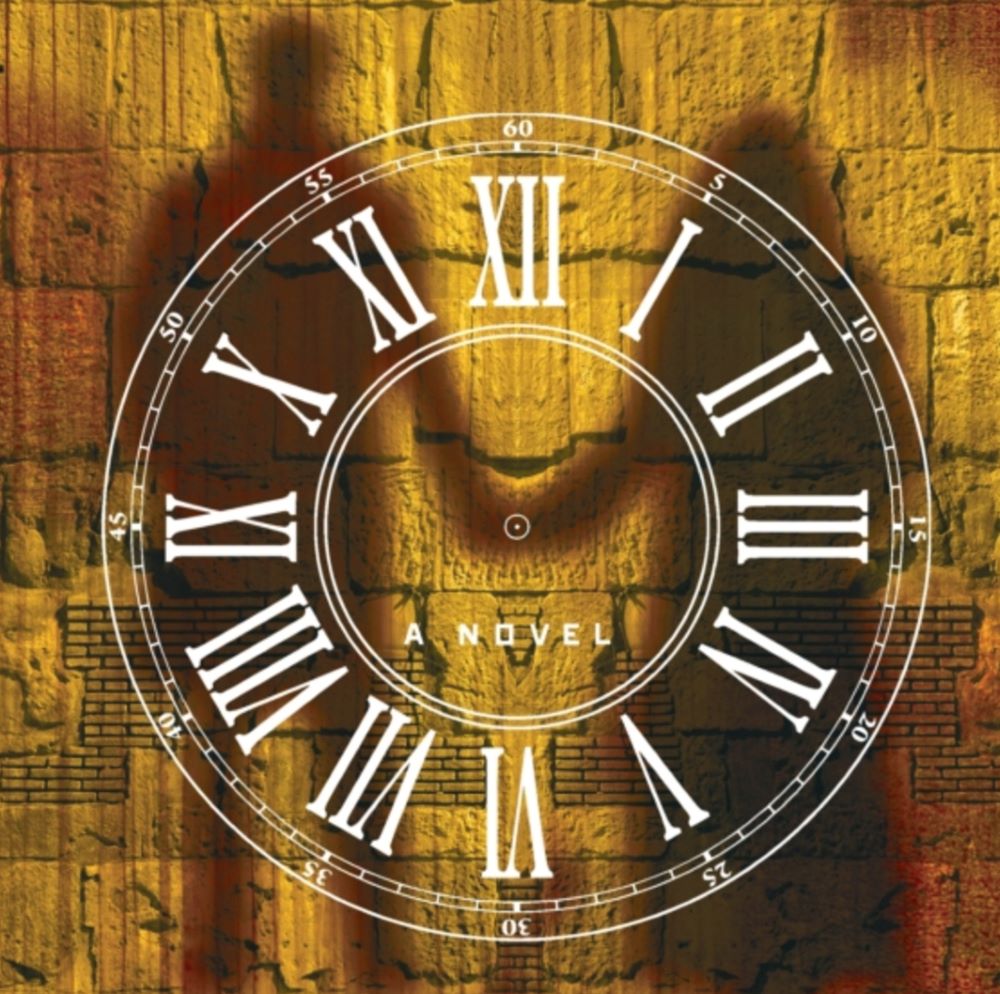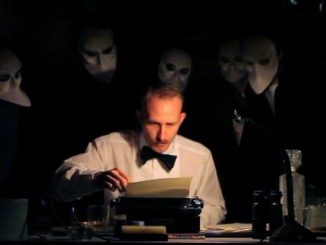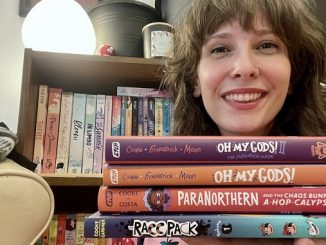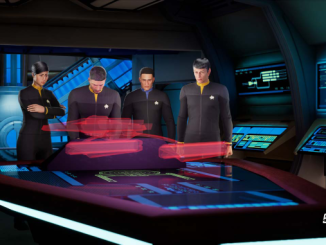If anyone had “Haruki Marukami reboot” on their bingo card for 2024, I can only assume that person is an extreme optimist, a clairvoyant, a time traveller, or some combination of the above. And yet here we are, closing out the year with a totally out-of-left-field remake of a forty-year-old novel by one of the world’s greatest living writers.
I still haven’t decided quite what to make of The City and Its Uncertain Walls, which revisits themes, locations, and plotlines from Murakami’s 1985 novel Hard-Boiled Wonderland and the End of the World — incidentally, the first Murakami I ever read, and still my favourite.
City reads sometimes like a remake, sometimes like one of those “legacyquels” with a new Death Star and a new Sand Planet but it’s not the same Death Star and sand planet, and sometimes, though not often enough, City gets the chance to stand on its own.
Even then, I can’t entirely be sure: by Murakami’s own admission, both Wonderland and now City are reimaginings of an earlier, largely forgotten short story also called The City and Its Uncertain Walls, which was never translated into English.

I cannot begin to describe the thrill I experienced when I first picked up my advance copy of The City and Its Uncertain Walls and realized, within barely a dozen pages, that Murakami was taking me back to “The End of the World”, the setting of his 1985 novel which I loved so much. I cannot begin to describe my disappointment when I realized, not long afterwards, that rather than expanding upon that world, City merely redraws some of its boundaries.
It’s fair to say most readers know Murakami from novels like 1Q84, Norwegian Wood, The Wind-Up Bird Chronicle, or his best-selling memoir What I Talk About When I Talk About Running. Hard-Boiled Wonderland and the End of the World, on the other hand, is better known to the diehards, or, in my case, people who picked up the book one time because they thought the title looked funky.
SHADOWS
At first, City contents itself with hitting the exact same beats as Wonderland: there’s an unnamed male narrator, a strange town surrounded by impenetrable walls and populated by unicorns, and a mysterious library where the narrator has just been blessed (cursed?) with the job of “Dream Reader.” A clock tower with no hands looms large.
The parallels hardly end there: the narrator forges connections with women both within and without the town, which may or may not be a figment of his imagination. He must abide by very specific rules – which I’ll avoid spoiling – governing not only his conduct in the town, but his ability to travel back and forth to the outside world.
There are shadows and doppelgängers, dream libraries which feel real, real libraries with dreamlike qualities. It’s a lot to take in, but it’s well-told and, if not quite a page turner, a captivating enough blend of fantasy, sci-fi, romance, and even the occasional action sequence.
THERE AND BACK AGAIN
The problem with all this, of course, is that Murakami has told this story before – and better.
1985’s Hard-Boiled Wonderland is a fantastic novel, brilliantly combining its sci-fi setting – the hard-boiled detective story which takes up half the novel – with its more fantasy-like “End of the World” segments, which often feel like they’re taking place in a remote pocket of Middle-earth.
City replays a lot of those same fantasy beats but jettisons the detective portions in favour of a real-world setting, centered on a lonely businessman with a penchant for jazz and works of classic literature. These sections can be interesting, but they too begin to hit the same beats over and over again, and are not nearly as riveting as the detective half of the previous version of this story.
City is rarely at pains to distinguish itself from Wonderland, and when it does – like excising the detective story – it’s usually to its disadvantage. Even Murakami’s decision to refrain from including a map, like the one included in Hard-Boiled Wonderland, comes across as a mistake. I take Murakami’s point: for reasons which eventually become apparent, it’s important for him that readers of this new novel create their own mental image of the town. Still, I prefer Wonderland‘s delightful inclusion of an actual map, in homage to the fantasy novels which inspired Murakami.
The bigger problem with City is that, if you’ve read Hard-Boiled Wonderland, you’ll soon grow tired of following the new protagonist as he slowly explores a world you’re already well-acquainted with. Imagine a Lord of the Rings sequel from the perspective of a new Hobbit, setting out from Hobbiton for the first time: he experiences many of the same locations and challenges as Frodo, and reacts much the same way. The reader, on the other hand, just wants the story to take off somewhere new.
GHOSTS OF FUKUSHIMA
Eventually, Murakami’s new City does just that, for better and for worse.
Perhaps the key difference between City and Wonderland is that its real-world setting has more than enough mystical elements of its own. This is interesting: it posits that the fantastic can bleed through into our real world, and further blurs the lines between here (Tokyo and, later, an unnamed village in Fukushima Prefecture – a location probably not chosen by accident) and there (the city with its uncertain walls).
There are some lovely moments in City which take advantage of that liminal space, and the striking parallels between the more prosaic real world – which tellingly has its own strange library – and that other world.
But this too all starts to feel familiar. Setting aside Wonderland for a moment, this new novel often feels like a greatest hits of Murakami past. There’s the lonely man unable to let go of a lost love (Norwegian Wood), a strange library (the novella The Strange Library), parallel worlds (pretty much all of 1Q84), an epistolary relationship (as in Norwegian Wood, much of the central love story here is told through letters), and an overwhelming number of Beatles references (see also: Drive My Car, Norwegian Wood, many, many more).
There’s nothing wrong with authors revisiting themes – Great Expectations, published in 1861, is easily superior to Oliver Twist, 1839 – but it’s a path that has to be navigated carefully. Sometimes, while reading City, I wished I was re-reading another of Murakami’s works instead. That’s never a good sign.
ISSUES
The novel has other weaknesses, at least some of which are attributable to translator Philip Gabriel, who previously did a far better job on other Murakami titles.
For one, the book is riddled with cliché. Not being fluent in Japanese, I can’t be sure of how much of this is on Murakami, but it’s genuinely startling to encounter phrases like “free as a bird flying through the sky”, or, “it seemed less like he was wearing the beret than the beret was wearing him”, in this otherwise very literary work.
The same applies to the misuse of “issues” as a catch-all for very different things, as in: “the public library operated by the town was deteriorating, and had been an issue for some time”; or, “the sadness that created profound issues.” I will, however, go ahead and blame Gabriel for the gratuitous use of “literally” as an intensifier: “literally not a sound”; “literally as silent as the grave”. I can’t imagine it’s that clunky in the original Japanese.
Then there’s the inescapable impression that Murakami thinks this is all much cleverer than it really is. City is far from the first work of fiction to play with the blurring of worlds and identities, as countless movies, video games, and Spider-Man memes can attest. Yet Murakami clearly expects us to be impressed by what amount to some fairly banal observations about tropes we’re all familiar with.
A LIBRARY OF BABEL, BUT NOT THE LIBRARY
There are many literary allusions in City, but the one name that’s noticeably absent, at least until Murakami’s afterword, is Borges.
If anything, this is the most Borgesian of Murakami’s works, with its infinite libraries, blending of the real and the dream world, and actions which seem to take place in the blink of an eye, or in the circuit of a clock with no hands.
City is at its best when Murakami attempts to show he’s a latter-day Borges. But it’s at its worst when it reminds us how much better it was the last time he tried this.
Murakami is now 75 years old, and clearly unafraid to rework earlier stories which he’s never entirely be content with. And while there’s something to be said for this, it’s also a disappointment that after a string of near-unassailable hits, The City and Its Uncertain Walls proves to be little more than the literary equivalent of a franchise reboot. It might be the End of the World, but it’s not my End of the World.
***
The City and Its Uncertain Walls is on sale now at Penguin Randomhouse Canada.



